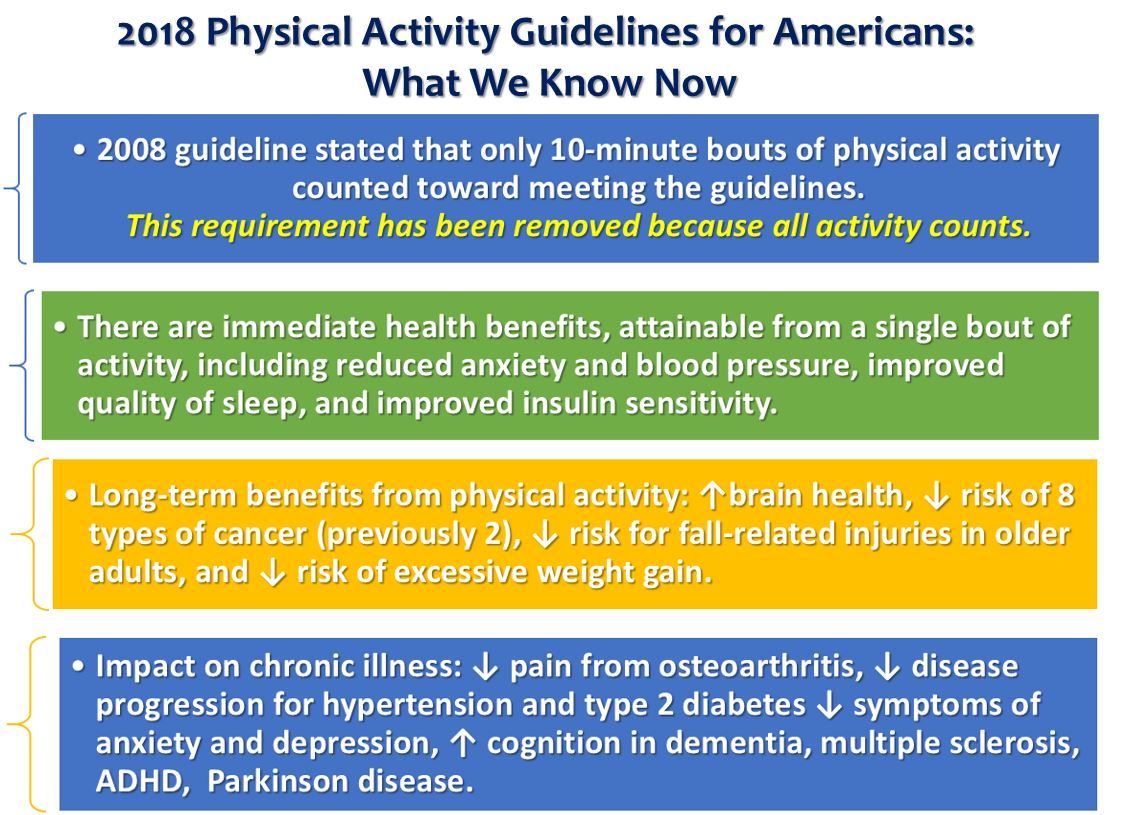- Clinical Technology
- Adult Immunization
- Hepatology
- Pediatric Immunization
- Screening
- Psychiatry
- Allergy
- Women's Health
- Cardiology
- Pediatrics
- Dermatology
- Endocrinology
- Pain Management
- Gastroenterology
- Infectious Disease
- Obesity Medicine
- Rheumatology
- Nephrology
- Neurology
- Pulmonology
Activity Guidelines Don't Motivate Americans
Americans still don't meet guideline-recommended physical activity levels even while sedentary behavior increases, according to a new NHANES analysis.

Americans need to move more and sit less, according to research published inJAMA Open Network that evaluated activity levels among a total of 27,343 participants in National Health and Nutrition Examination Surveys (NHANES) from 2007 to 2016.
The new study found that sedentary behavior has increased significantly in the United States while time spent in any aerobic activity has not changed at all since the original 2008 release by the Department of Health and Human Services (HHS) of its Physical Activity Guidelines for Americans.
The analysis showed that sedentary behavior increased from a weighted average of 5.7 hours/day in the 2007-2008 survey to an average 6.4 hours per day in 2015-2016. The highest proportion of hours spent in sedentary behavior was reported by participants in the 2013-2014 NHANES population-a mean of nearly 8 hours/day.
The proportion of participants who did not meet the activity guidelines for aerobic activity and reported more than 6 hours/day each day of sedentary behavior also increased between 2007-2008 and 2015-2016, with those in the 2013-2014 survey again reporting the largest number of participants eschewing exercise:
- 2007-2008 16.1%
- 2015-2016 18.8%
- 2013-2104 25.9%
The Physical Activity Guidelines for Americans, first released by HHS in 2008 and updated in 2018, originally recommended “a minimum of 150 minutes of moderate-intensity or 75 minutes of vigorous-intensity aerobic exercise.” The most recent guidance doesn't change these targets and also reflects the rapidly growing body of evidence for the deleterious effects of inactivity, including increased risk of risk of heart disease, high blood pressure, and all-cause mortality. See graphic below for the now well-understood benefits of regular physical activity.
According to Katrina L. Piercy, PhD, RD, of the Office of Disease Prevention and Health Promotion in HHS, who authored a commentary published with the study, 25% of US adults currently do not engage in any leisure-time physical activity. Piercy notes that the HHS guidelines are “public health targets,” but that even moderate amounts of activity can yield positive health results. She emphasizes that any increase in movement is better than none.
